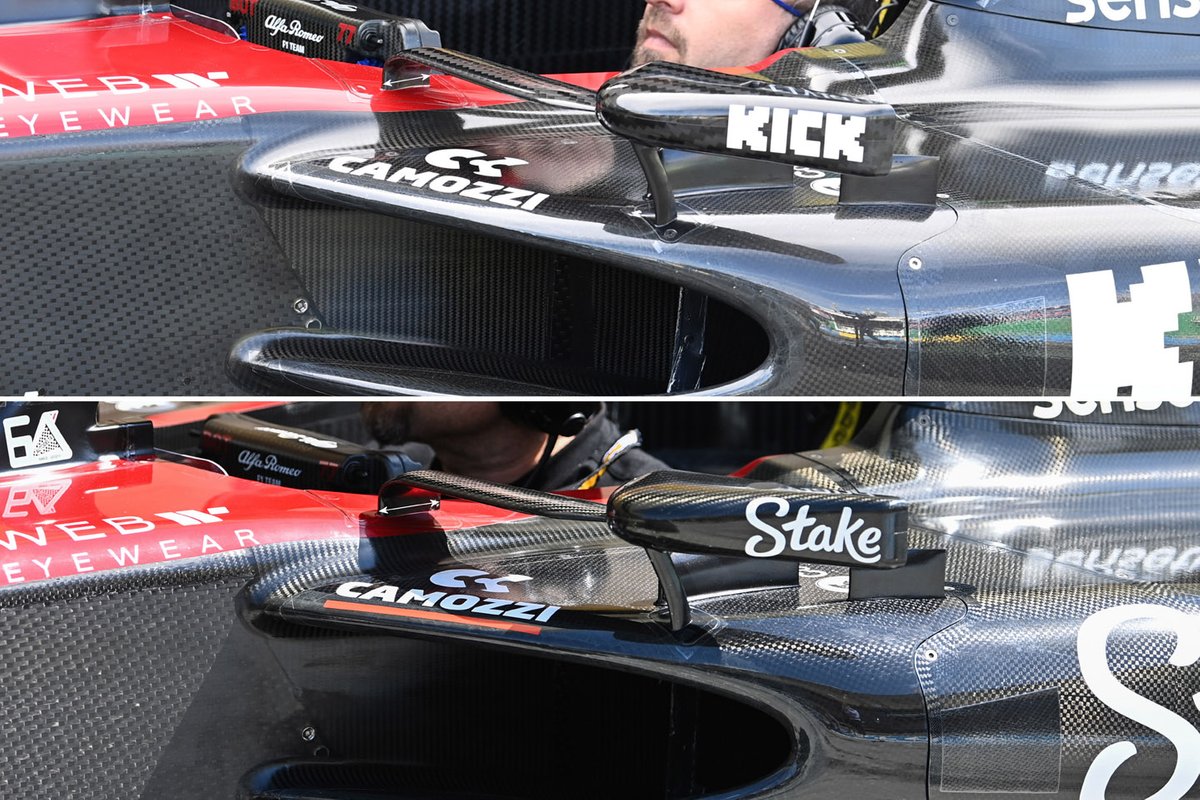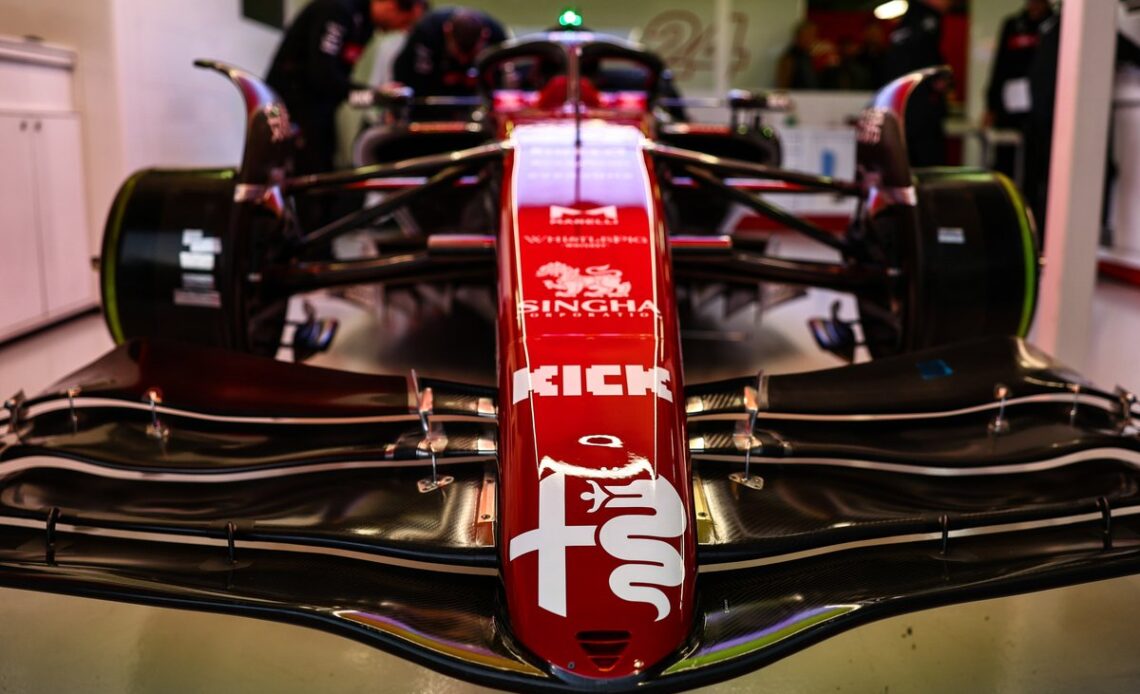The new nose and front wing have been aimed at both ramping up downforce and also helping give the team more options to better balance the car in future races.
Alfa Romeo’s head of trackside engineering Xevi Pujolar said the downforce gains from the updates had wider benefits for the whole car.
“We thought that front wing would bring a bit back the car balance,” he explained. “I don’t think we have particular weaknesses at the moment.
“With the front wing, for example, the whole car is working better together. So I would say it’s just overall development.”
Alfa Romeo F1 Team C43
Photo by: Alfa Romeo
The main change comes from the adoption of a full-length nose, with the tip now starting on the leading edge of the mainplane rather than on the second element. This has also resulted in the shape of the mainplane being altered in the central section, to affect both the pressure distribution and airflow around the structure and wing.
It’s also worth noting that the physical presence of the nose being extended forward alters how the designers are able to handle the associated loads.
This is highlighted by the reduction in slot gap separator brackets that connect the mainplane and second element. That number has been reduced from four per side, to just three, whilst their distribution has been shifted away from the centreline too.
With teams permitted to use eight of these per side, it might not be long before we see the Alfa employ a similar arrangement between the upper two flaps to the one that first appeared on the Mercedes last season and that Ferrari has utilised in 2023.
The outer portion of the mainplane has also been altered. Whereas the leading edge previously arched upward, presenting the underside to the oncoming airflow, it now has a flat edge.

Alfa Romeo C43 mirror stays
Photo by: Uncredited
A small modification has been made to the wing mirror stalk too, with the chord shortened slightly, as the team looks to alter the influence it has on the local airflow.
The shorter stalk (top) can be compared with the specification used in Bahrain and Saudi Arabia and is indicated by the white arrows.
Additional reporting by Adam Cooper
Click Here to Read the Full Original Article at Motorsport.com – Formula 1 – Stories…

